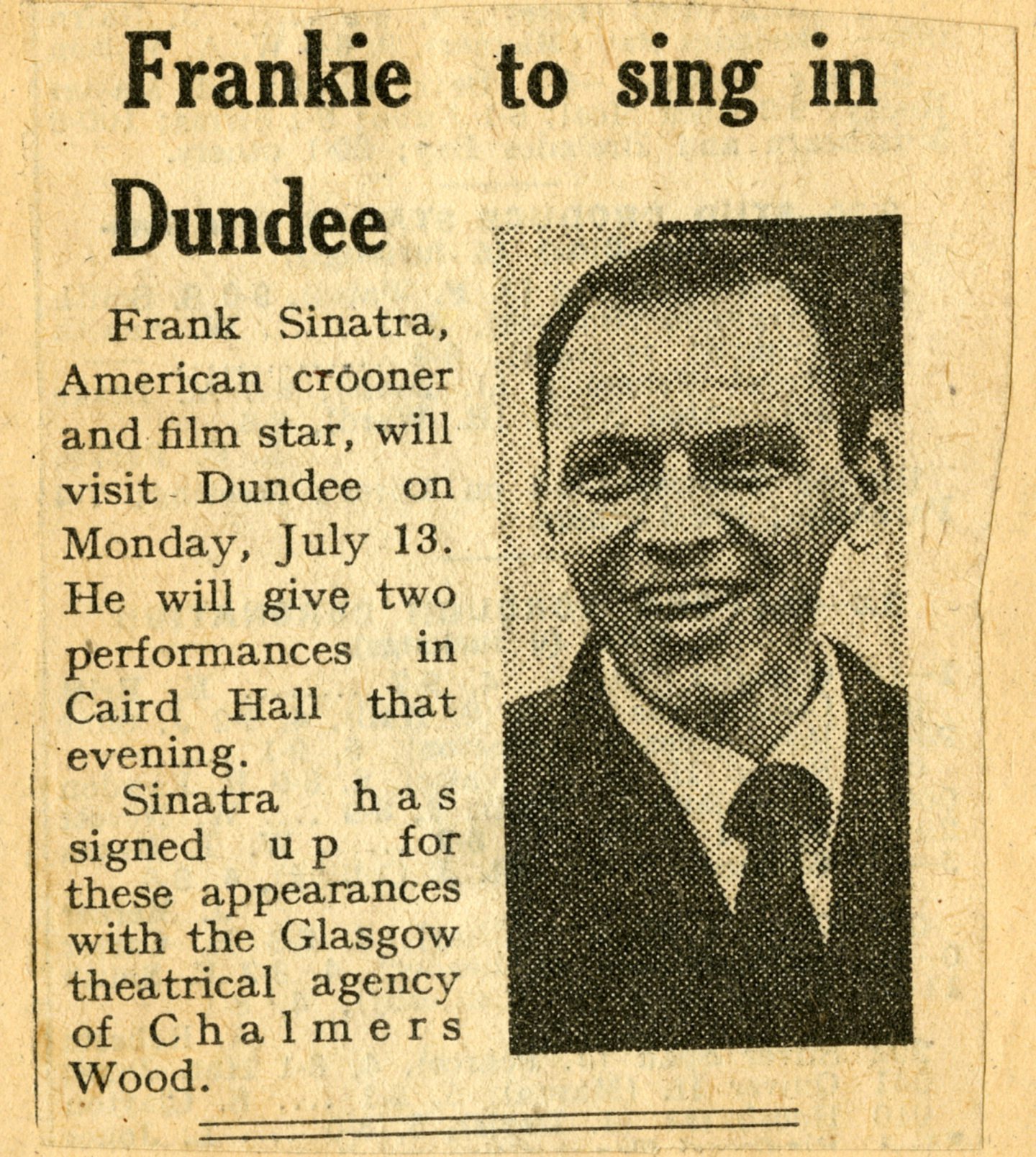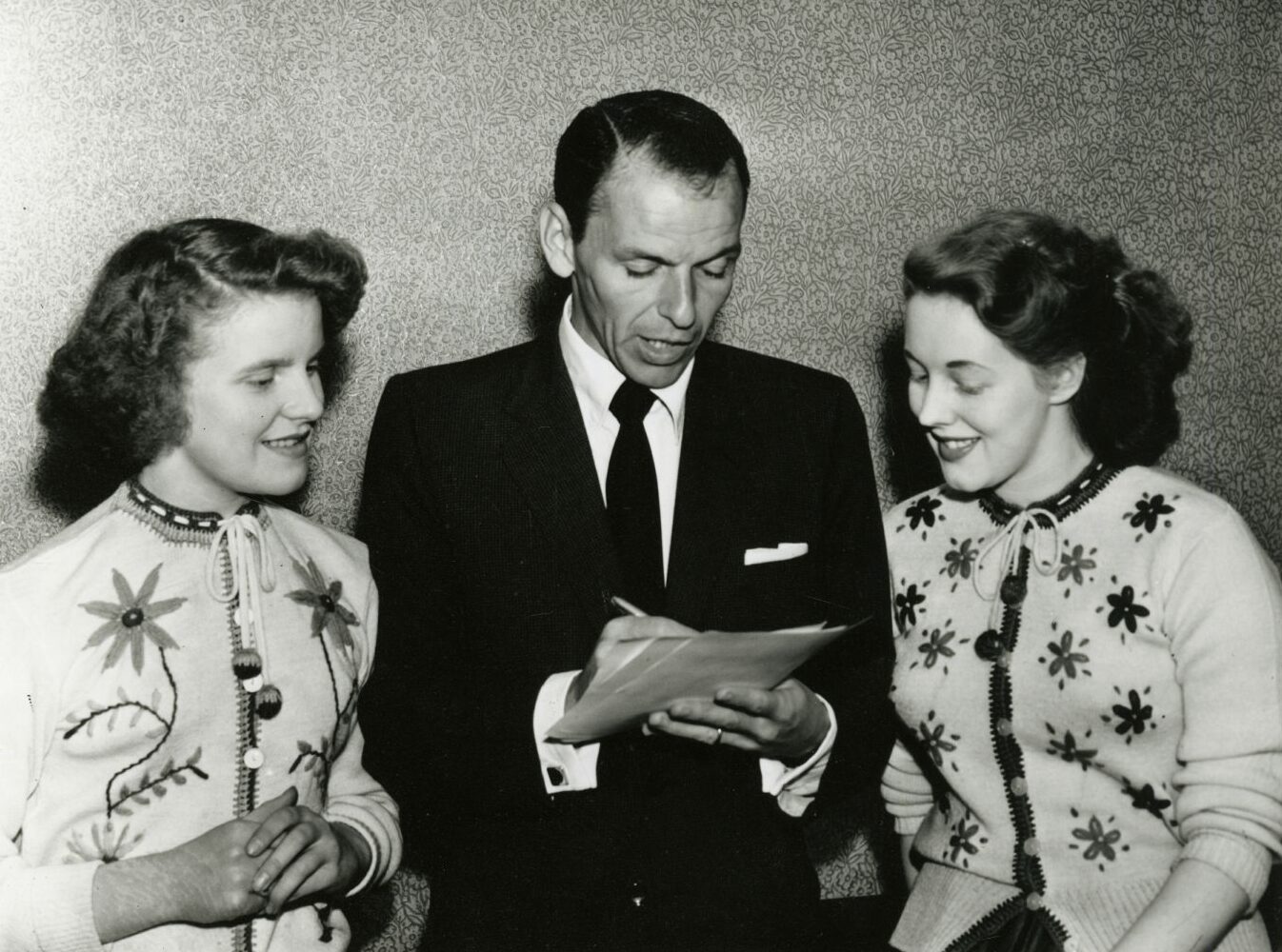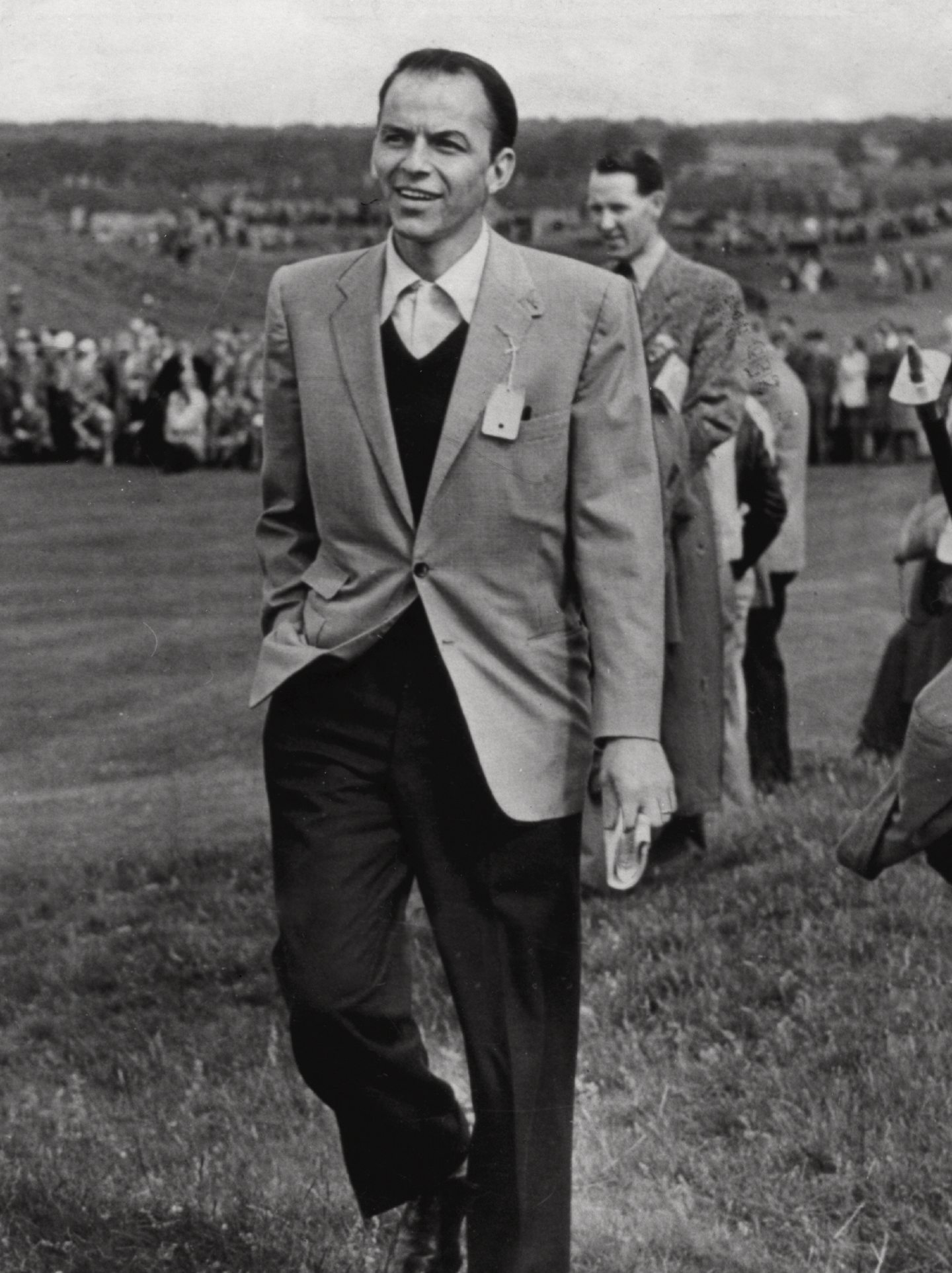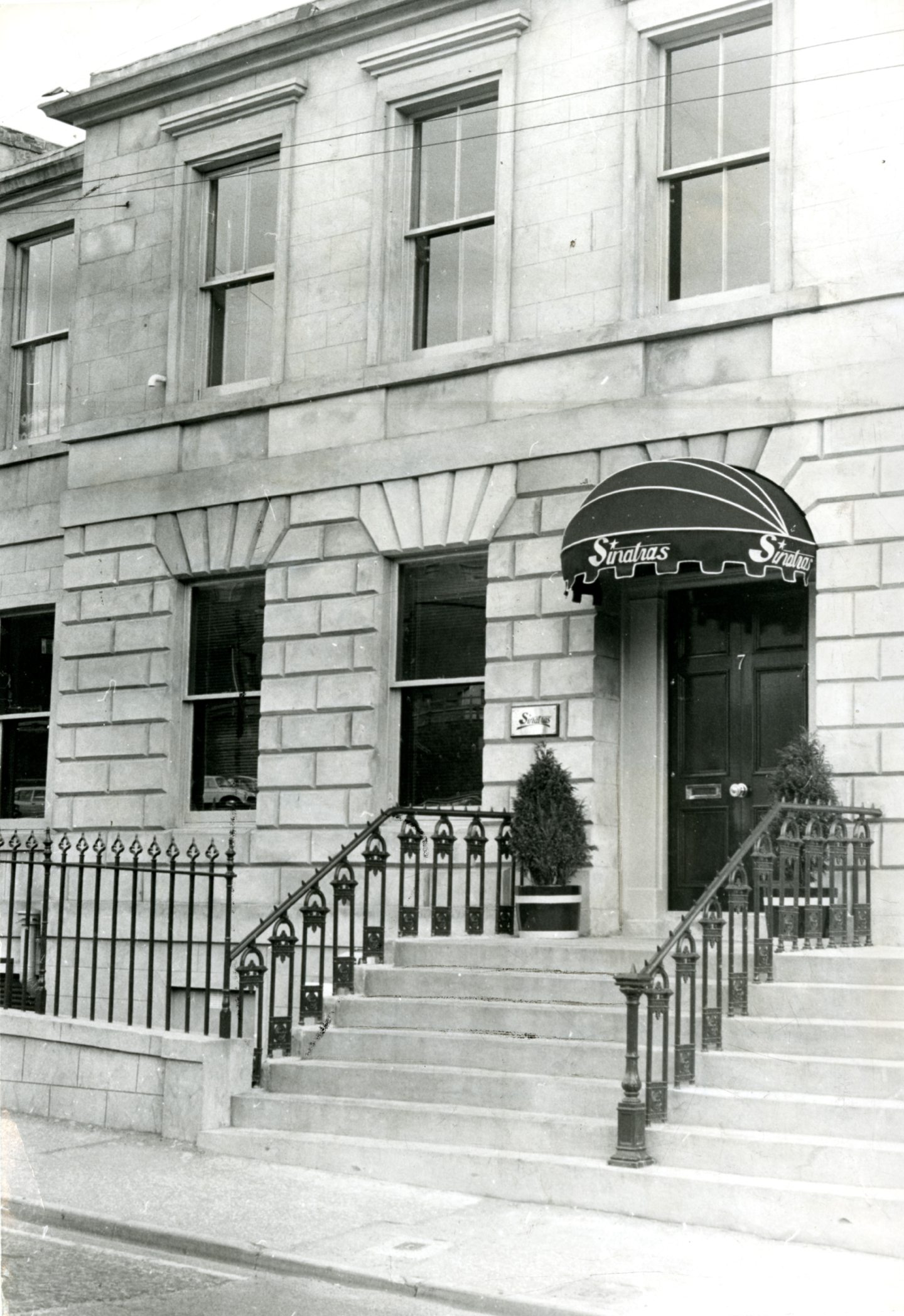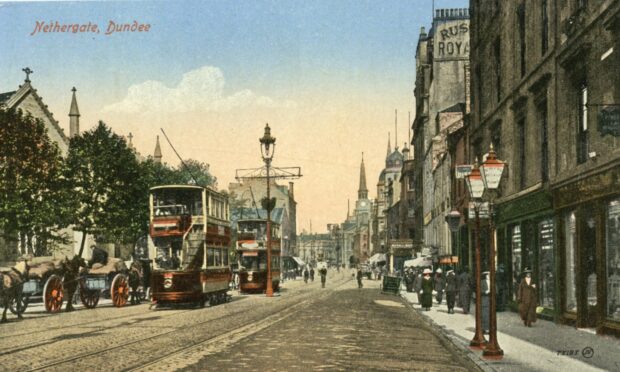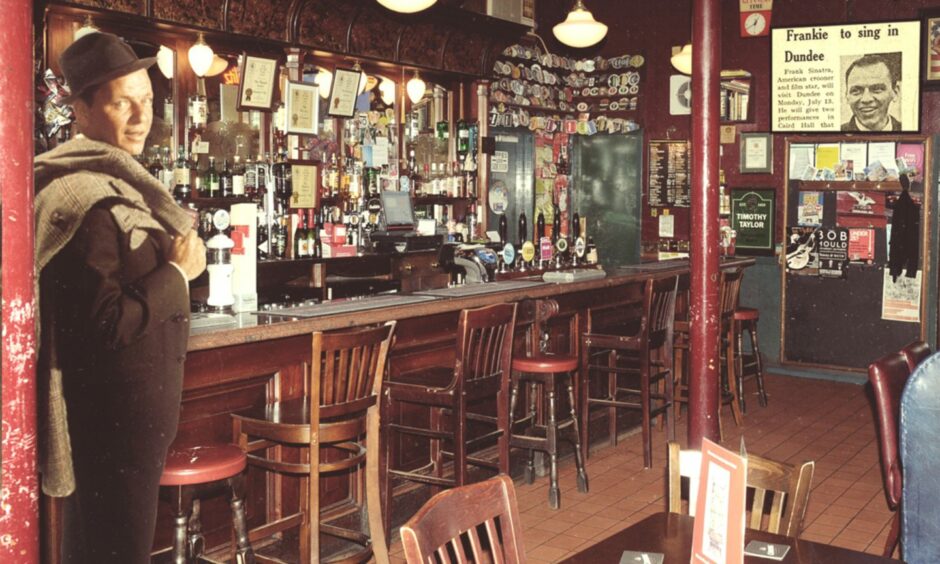
Seventy years have passed since Frank Sinatra, Ol’ Blue Eyes, played a double header at the Caird Hall in Dundee.
But an urban myth persists – did he really enjoy a pint at The Phoenix in the Nethergate a week earlier?
Five years ago the story popped up in Still Game as OAPs Jack and Victor – played by Ford Kiernan and Greg Hemphill – mocked their pal Eric for claiming he had an affair with Italian movie star Gina Lollobrigida.
In ‘Grim Up North’, Jack says: “He’s always had that patter, though. He told me he ran into Frank Sinatra in the Phoenix Bar in Dundee.”
Victor replies: “That’s right – and I met Sammy Davis Jr at the Barras buying a Calor Gas fire.”
Dundee author Brian King has charted the fortunes of the city’s pubs — and refuses to rule out the possibility of the legendary crooner having a nightcap in The Phoenix.
He said: “There is a persistent story that Frank Sinatra once drank in the Phoenix.
“If he did, it would have been on the evening of Wednesday July 8 1953, when he travelled to Dundee from Glasgow and stayed overnight at the Queen’s Hotel before watching the Open golf championship at Carnoustie the following day.
“He played the Caird Hall the following week but did not stay in Dundee then.
“Given the hotel’s proximity to The Phoenix, there is every possibility that ‘Ol’ Blue Eyes’ popped in for a drink — and possibly even one more for the road.”
Sinatra shrugged off North Sea chill
The “top-line American crooner” — as he was described at the time — played a double header at the Caird Hall on July 13 1953 as part of a mini-Scottish tour.
The first show at 6.15pm attracted just 586 people.
Barely a quarter of the places at the Caird Hall were full.
Ol’ Blue Eyes invited the folk at the back to “come down where I can see you” and they began to shuffle their way to the more expensive seats at the front of the stage.
Although he was said to be suffering from the onset of a cold, Sinatra was in fine form and spent a large part of the show sitting on the edge of the stage.
Altogether he sang 13 songs with a pause in between to chat to the audience while walking about the stage drinking a cup of tea which was “good for the vocal chords”.
Among the songs he sang were the poignant September Song, Ol’ Man River, Birth Of The Blues and Nancy with the Laughing Face which had been written for his daughter.
Sinatra also performed You’ll Never Walk Alone in Dundee which the audience, if they recognised the song at all, would have associated in 1953 with the 1945 Rodgers and Hammerstein musical Carousel rather than the football terraces.
The second house at 8.45pm attracted 1,189 fans.
Sinatra did not express any disappointment with the poor turnout in an interview which appeared in The Courier the following day.
“That happens in other cities,” he said.
“What really matters is their response and it was wonderful.
“I have a very high opinion of Scottish audiences.”
Did Dundee really snub Ol’ Blue Eyes?
Privately, though, Sinatra was said to be annoyed at the poor turnout and vowed never to play the city again.
He left immediately after the show for Glasgow by car and the next morning caught a plane for London.
Brian said: “This idea that Dundee uniquely snubbed Sinatra, though, is a myth.
“For one thing, the fact that he played two performances at the Caird Hall is often ignored. If there had been a single performance, then attendance might not have been close to the Caird Hall’s capacity but the shortfall would not have been worthy of remark.
“There were various reasons for Sinatra’s decline in popularity at this time.
“His teenage audience -the so-called bobby-soxers – were growing up and developing different interests, while Sinatra himself was now nearing 40.
“As many artists have found since, along term career cannot be sustained on the passing enthusiasms of a teenage audience alone.
“The younger fans that Sinatra did retain in Britain in 1953 faced a different problem in a country still suffering the after-effects of post-war austerity and where some rationing was still in place.
“After the Dundee concert, a correspondent named Catriona wrote to the local press, blaming the ticket prices at the Caird Hall , which ranged from five to 15 shillings, for the poor attendance. The largest part of Sinatra’s following, she reasoned , were teenagers, who simply could not afford the more expensive tickets.”
“Catriona” said whoever arranged the concert “must have been optimistic regarding his fans’ finances”.
Brian — whose book Rediscovered Dundee features Sinatra’s visit — said it’s unlikely that he would have remembered his visit to the city with any particular disdain.
He said: “On the contrary, the city may have featured in one of his happier memories of that British tour.
“Sinatra’s friend Ben Hogan went on to win The Open at Carnoustie in a record breaking year that also saw him triumph at the Masters and the US Open.”
Sinatra never looked back after 1953
Sinatra’s career was, relatively, at a low ebb in the early 1950s – although it was to get a major boost soon after his trip to Dundee, when the film From Here To Eternity was released, which won him an Oscar for Best Supporting Actor.
After 1953, Sinatra never again undertook a full scale concert tour of Britain.
His concert appearances in Britain were few and far between although he returned to Scotland and performed a single concert at Ibrox Stadium, Glasgow, on July 10 1990 at the age of 74 — just short of 37 years after he appeared at the Caird Hall.
The Ibrox concert saw him sing many of his iconic tracks such as Strangers in the Night, New York, New York, Mack The Knife, The Lady Is a Tramp and My Way.
His legacy lived on for many years in Dundee when a pub in King Street named Sinatra’s opened in 1981 and was the brainchild of local businessman Ian Hindmarsh.
Mr Hindmarsh had to make clear the pub was not owned by the legendary crooner just in case anyone thought the Chairman of the Board had added it to a property portfolio which included real estate on the Upper East Side of Manhattan and Palm Springs.
The image of Sinatra adorned virtually every wall in the Dundee pub with a choice of cocktails with such titles as My Way and Strangers in the Night.
Sinatra died at the age of 82 in Los Angeles in 1998 and Mr Hindmarsh was among those that joined the outpouring of emotion from the millions who loved his music.
“It’s really sad that he has gone,” he said.
“Although he’s been ailing for a while now, we all thought he would live forever.”
So did he.
“I hope you all reach 465 years old and may the last voice you hear be mine,” Sinatra told fans during his last British concerts.
